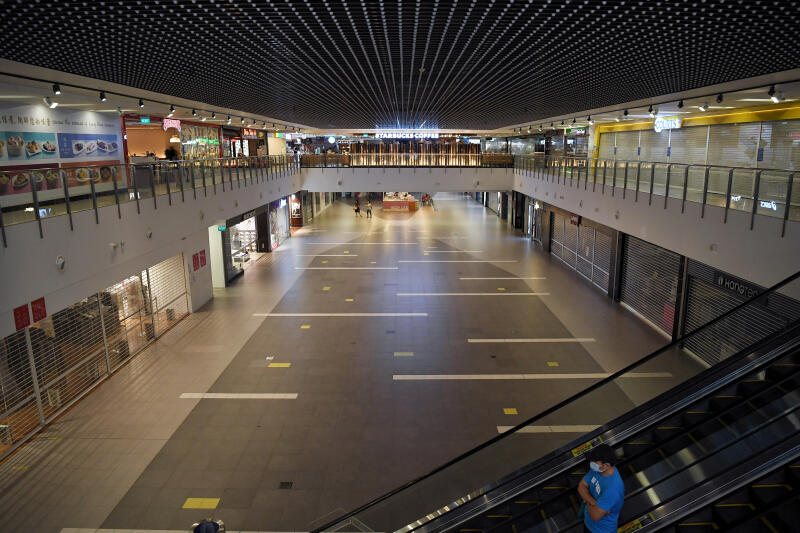Study finds high levels of support for Singapore's Covid-19 circuit breaker measures
Sign up now: Get ST's newsletters delivered to your inbox

Social gatherings and most activities were put on hold during the circuit breaker between April 7 and June 1 last year.
ST PHOTO: KUA CHEE SIONG
Follow topic:
SINGAPORE - Most respondents to a large-scale study on the effects of Singapore's circuit breaker felt the Government did a good job in managing the Covid-19 pandemic during the lockdown, and showed high levels of willingness to continue with some form of those measures as needed.
A team of six researchers from three institutes who worked on the study found that when it came to measures to address the pandemic, people felt public health and safety should be the top priority driving their implementation, followed by economics and livelihoods.
An average of close to 80 per cent of the survey's more than 6,000 respondents graded the Government's management of the pandemic during the circuit breaker as "very well" or "fairly well", with only 5 per cent saying it was handled very badly.
Zooming in on specific measures mandated during the lockdown, more than 80 per cent of the respondents agreed that people should practise social distancing and wear face masks while in public. Between 70 per cent and 80 per cent also agreed that the elderly and vulnerable persons should stay at home as much as possible.
The researchers released their findings in three academic papers published by the S. Rajaratnam School of International Studies (RSIS) from Aug 10 to 13.
The circuit breaker between April 7 and June 1 last year put social gatherings and most activities on hold. It was gradually lifted with a three-phased reopening plan.
The study showed there was a high level of willingness to at least partially continue with mitigation measures put in place during the circuit breaker. For instance, only 8 per cent of respondents said they were not willing to wear face masks in indoor public places, and only 3 per cent said they were not willing to practise social distancing. Just 6 per cent said they did not want to have mandatory health checks.
Many respondents felt the sacrifices they made were worth it, if it meant that their personal and the wider community's well-being were better protected. Close to four in five agreed that sacrifices to their personal movement were worth making, and almost three in four said they were okay with the sacrifices made in relation to work.
Nearly seven in 10 of the respondents agreed with the sacrifices made to their privacy to ensure their personal health, as well as the health of their families and the wider community.
The researchers said this was in line with their findings that a large percentage of respondents felt public health and safety should come first in Covid-19 mitigation measures before the economy and livelihoods. "People placed much lower emphasis upon psycho-social well-being and very little emphasis upon their privacy and personal liberties," they said.
Dr Patrick Daly, one of the authors of the study, said the researchers found very high levels of support for the Government's actions, which he attributed in part to the relatively high trust the public has for government and public health officials, and the media.
Many countries which have fumbled with their responses lacked such levels of trust and the clear flows of detailed information communicated by Singapore, he added.
Dr Daly, who is a senior research fellow at the Earth Observatory of Singapore in Nanyang Technological University, said: "Effective communication is critical to disaster management and crisis response - and our data suggests that this was a major area of strength in Singapore and a sound foundation to build on."

